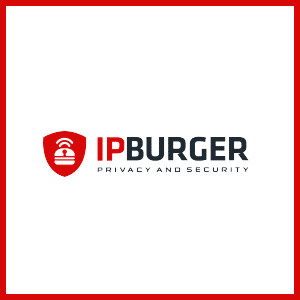Achieving digital privacy and anonymity is one of the best things you can reward yourself in this modern digital era. Although privacy and anonymity are two-faced, the good reasons to become private and anonymous outweigh the wrong reasons. Although one cannot achieve total privacy, you can always ensure that what is known about you is minimal. And here is how to do that;
 Avoid oversharing your PII
Avoid oversharing your PII
Personally Identifiable Information (PII) is any piece of information or data that can be linked to a specific person. This data is mainly composed of your name, your face, social security number, date of birth, your home address, location and everything that points to you. Most of the time, you can share this data without knowing for instance, when it’s requested by some online services or even in social media platforms. If it’s a service that you can do away with, think twice before giving out your PII. For instance, what if a data breach occurs? Or your details are hijacked by malicious actors?
To be safe, always have another set of your information that cannot be linked to you. For instance, you can have a second email and use it for online shopping, another one for social media and always make sure that their passwords are not related.
 Avoid Free Public Wi-Fi
Avoid Free Public Wi-Fi
Free public Wi-Fi is very enticing, and it can help you cut data costs. At the same time, it can be very costly if malicious actors intercept your internet traffic. Free public Wi-Fi has many vulnerabilities and threats lurking around waiting for unsuspicious users. Malicious actors can get to your data easily by eavesdropping, snooping, spoofing and even use other sophisticated attacks such as man-in-the-middle attacks. If at all you cannot avoid public Wi-Fi, use it for non-sensitive communication.
Avoid Public Computers
Public computers can be a threat to your privacy if malicious actors have taken control. That’s, public computers may have keyloggers that harvest user input data or other spyware that collect information without the user’s consent. If, let’s say the public computers are free of malware and you really need o use them, always turn on incognito mode/private browsing.
Private browsing is not that helpful against online malicious actors, but it will help you preserve your local privacy, browser level. For instance, after you finish surfing the internet, the next person won’t know what you were up to as the browsing history and cookies are cleared. Some browsers provide the ‘Do not track’ feature.
Use privacy-focused apps and services
Privacy-focused apps and services can help you ensure that you give out minimal data and the risk of your data being breached or accessed by malicious actors will be minimal. For instance, you can use Duck Duck Go as your search engine, Signal app for messaging and Brave browser for surfing the internet.
Use Tor
Tor is an anonymizer network composed of several nodes and relays. When using Tor, your internet traffic is encrypted and then anonymized by being relayed over the several nodes in the network. This relay is done in a continuous random manner in that when your traffic finally reaches its destination, the source of your data won’t be known, only the address on the exit node is revealed. This makes it difficult for anyone tracking you. This results in a higher level of anonymization which is capable of protecting your privacy from surveillance and even traffic analysis.
 Use a VPN – IPBurger VPN
Use a VPN – IPBurger VPN
A VPN provides both security and privacy. A VPN ensures that your internet traffic is secure by encrypting it and tunneling it through the selected server until it reaches its destination. A VPN uses unbreakable encryptions standards such as the AES 256 bit standard. Through the chosen server, a VPN also assigns you a virtual IP address which masks your real IP address. This virtual IP address also hides your actual location, and this gives you privacy.
Tor over VPN
A combination of Tor and VPN can help you achieve higher levels of anonymity. Especially when the using Tor over VPN set up. In this setup, you connect to a VPN and then to Tor. This hides your actual IP address from the Tor network, your Tor traffic will be encrypted further, and your internet won’t be visible to prying eyes.

 Avoid oversharing your PII
Avoid oversharing your PII Avoid Free Public Wi-Fi
Avoid Free Public Wi-Fi Use a VPN – IPBurger VPN
Use a VPN – IPBurger VPN

